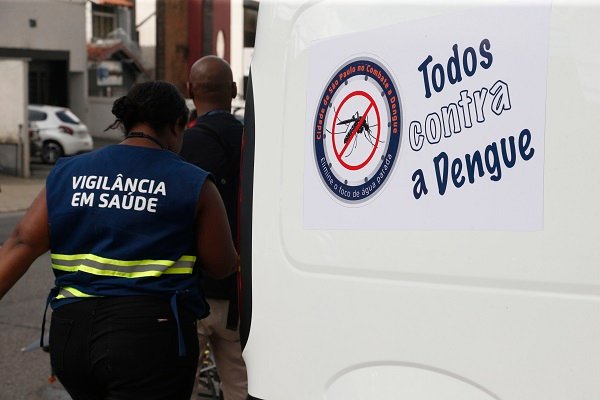The Health Ministry announced that Brazil has surpassed the total of 2 million cases of dengue in 2024. Of the total of 2,010,896 probable cases, 682 resulted in death – a number that could increase, as there are still 1,042 deaths under investigation. According to a balance released by the ministry, the incidence rate of the disease is 990.3 cases for each group of 100 thousand inhabitants. The World Health Organization (WHO) considers that rates above 300 cases per 100,000 inhabitants indicate an epidemic situation.
This Content Is Only For Subscribers
To unlock this content, subscribe to INTERLIRA Reports.
Serious Cases
On Wednesday (20/03), sources from the Health Ministry informed that the first three months of 2024 recorded more serious cases of dengue than in the entire year 2023 when around 1.6 million cases were reported. That year, the disease killed 1,094 people.
State of Emergency in São Paulo
Dengue cases rose by 40% in the city of São Paulo, between 6 and 13 March, with 14,303 new cases in the period. After this growth in cases, São Paulo City Hall declared a state of emergency due to the dengue epidemic. Until 13 March, the city had recorded 49,721 confirmed cases, a number that exceeds 414.1 cases per 100,000 inhabitants, according to data released in this Monday’s bulletin (18/03). The declaration of emergency allows the urgent use of measures to prevent and contain the risks of epidemics.
According to Mayor Ricardo Nunes (MDB), the east zone and Vila Jaguara, in the west region, are the most worrying.
Strike
More than half of the employees working to combat dengue have been on strike since last week. The information was passed on by Mayor Ricardo Nunes (MDB), on Monday morning (18). Since 12 March, the city hall has had sectors of civil servants on strike, with salary increases being the main demand. According to Sindsep (Union of Municipal Employees of São Paulo), around 70% of Health Surveillance Units (Uvis) in the capital joined the movement. The Uvis are decentralized units of Health Surveillance Coordination (Covisa), which work in environmental, health, and epidemiological surveillance. In total, there are 28 in the city.




